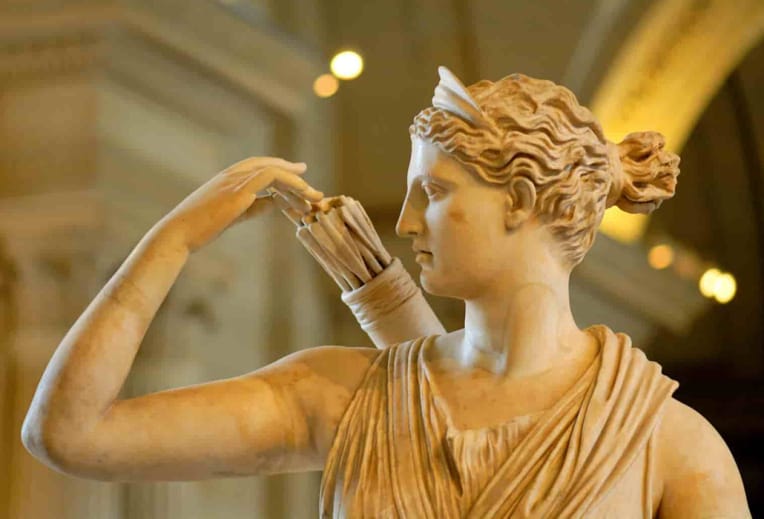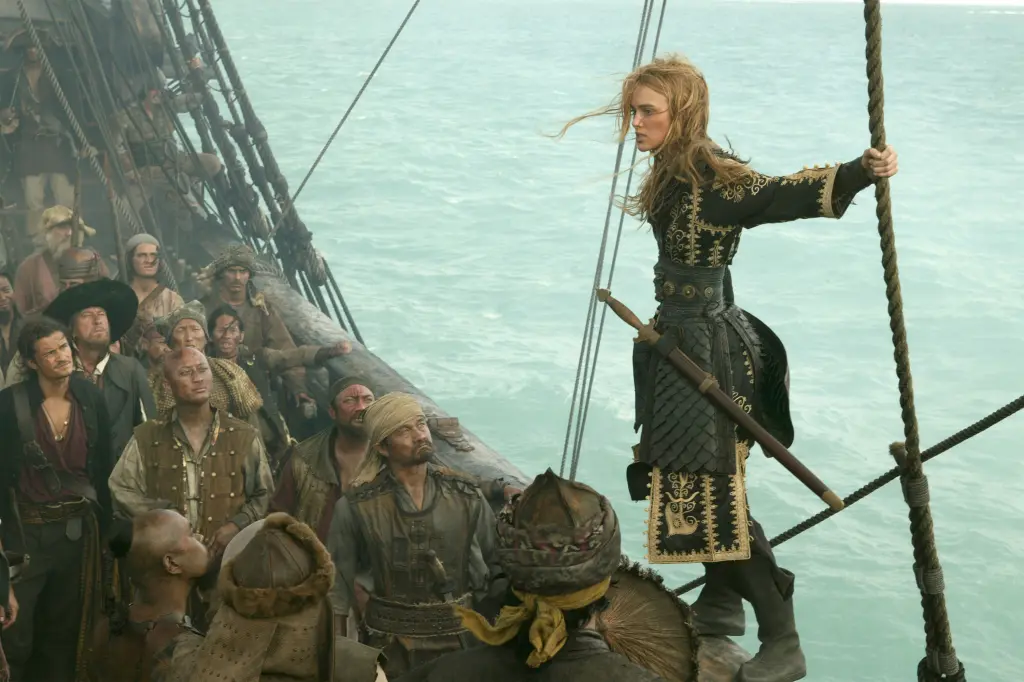Greek mythology is a rich tapestry of stories, gods, goddesses, heroes, and mortals, each playing a crucial role in the ancient Greeks’ understanding of their world. These myths are not just tales of wonder but are reflective of the social, political, and cultural contexts in which they were told. Central to these myths are the depictions of women, which offer profound insights into the roles and perceptions of women in ancient Greek society. This article explores the place of women in Greek mythology through a feminist lens, examining the multifaceted representations of female characters and their implications for understanding gender dynamics in ancient Greece.
The Duality of Goddesses: Power and Subjugation
Greek mythology presents a fascinating duality in the portrayal of goddesses, oscillating between empowerment and subjugation. On one hand, we encounter goddesses who wield immense power, often surpassing their male counterparts in wisdom and influence. On the other hand, these same narratives frequently undermine their autonomy, reflecting the patriarchal structures of ancient Greek society.

Athena: Wisdom and War
Athena, the goddess of wisdom and war, is one of the most complex and revered figures in Greek mythology. Born from the head of Zeus, fully armed and grown, she embodies the fusion of intellectual and martial prowess. Athena is a patron of heroes, guiding figures like Odysseus and Perseus to success. Her virginity symbolizes her independence and self-sufficiency, distancing her from traditional female roles of marriage and motherhood.
However, Athena’s power is not without its constraints. Her birth itself is a product of Zeus’s actions, effectively eliminating the need for a mother figure. This narrative subtly reinforces male dominance by suggesting that even a powerful goddess’s existence and abilities are contingent upon a male god. Additionally, while Athena is a warrior, her role is often that of a strategist or protector, reflecting a more passive form of power that aligns with traditional female virtues of wisdom and nurturing, albeit in a divine context.

Hera: The Queen of Heaven
Hera, the wife of Zeus, is the queen of the gods and a symbol of marriage and family. Her depiction is a study in contrasts. On one hand, she is a powerful deity, commanding respect and fear. On the other hand, her mythology is replete with stories of jealousy and revenge, often triggered by Zeus’s infidelities. Hera’s wrath typically targets the mortal women and illegitimate offspring resulting from these affairs, highlighting her powerlessness in changing Zeus’s behavior and reflecting the struggles of mortal women in patriarchal marriages.
Hera’s role reinforces the subjugation of women within the institution of marriage. Her divine status does not protect her from the indignities of her husband’s unfaithfulness, mirroring the plight of many Greek women. Moreover, her power is largely exercised in the context of her marriage, indicating that even a goddess’s influence is framed within her relationship to a male counterpart.
Mortal Women: Victims and Agents
While goddesses embody the divine archetypes of femininity, mortal women in Greek mythology often portray the harsh realities of women’s lives in ancient Greece. These characters range from victims of male desire and violence to cunning and powerful agents of change.
Helen of Troy: The Face That Launched a Thousand Ships
Helen of Troy is perhaps one of the most famous figures in Greek mythology. Her beauty is said to have sparked the Trojan War, leading to the downfall of an entire city. Helen’s story is one of paradoxes. She is both a prize and a pawn, her beauty a blessing and a curse. While she is often blamed for the war, her agency in her abduction by Paris (or elopement, depending on the version) is ambiguous.
Helen’s narrative reflects the objectification and commodification of women. Her worth is tied to her physical appearance, and her fate is decided by the men around her. Despite this, some versions of the myth hint at her complexity and inner turmoil, suggesting a deeper humanity often overlooked in patriarchal storytelling.

Penelope: The Faithful Wife
Penelope, the wife of Odysseus, stands as a paragon of marital fidelity and patience. During Odysseus’s twenty-year absence, she skillfully fends off numerous suitors, employing wit and cunning to delay remarriage. Penelope’s loyalty and intelligence make her a revered figure, embodying the virtues expected of Greek women.
However, Penelope’s story also underscores the limitations placed on women. Her identity and worth are inextricably linked to her husband’s. While her intelligence is celebrated, it is primarily exercised in the service of preserving her marriage and household. Penelope’s agency is confined to her role as a wife and mother, reflecting the broader societal expectations of women’s roles in ancient Greece.
The Subversive Power of Female Mythological Figures
Despite the predominantly patriarchal context of Greek mythology, several female figures subvert traditional gender roles, challenging the constraints imposed on them and offering alternative narratives of female empowerment.
Medea: The Sorceress and Avenger
Medea, a sorceress and wife of Jason, is one of the most controversial figures in Greek mythology. Her story, particularly as depicted in Euripides’ tragedy “Medea,” showcases her as a powerful, independent woman who defies societal norms. Betrayed by Jason, she exacts a horrific revenge by killing their children, an act that both horrifies and fascinates audiences.
Medea’s narrative is a stark departure from the passive female archetype. She is intelligent, resourceful, and fiercely autonomous. Her actions, while extreme, highlight the destructive potential of spurned female agency in a patriarchal society. Medea’s story serves as a cautionary tale about the consequences of marginalizing and betraying powerful women.

The Amazons: Warrior Women
The Amazons, a mythical tribe of warrior women, represent an outright rejection of traditional female roles. Living in a matriarchal society, the Amazons are formidable fighters, often depicted in conflict with male heroes like Heracles and Theseus. Their society subverts the typical gender hierarchy, placing women in positions of power and independence.
The Amazons’ portrayal is both empowering and problematic. While they symbolize female strength and autonomy, they are often depicted as antagonistic to the Greek heroes, reinforcing the notion that such independence is unnatural and threatening. This duality reflects ancient Greek anxieties about female power and the societal need to contain it.
Feminist Interpretations and Re-evaluations
Modern feminist scholars have re-evaluated these mythological narratives, uncovering layers of meaning that reveal both the oppression and the resilience of women. By analyzing these myths through a feminist lens, we gain a deeper understanding of the complex roles women played in ancient Greek society and how these stories continue to influence contemporary perceptions of gender.
Challenging Patriarchal Narratives
Feminist interpretations often challenge the traditional, patriarchal readings of Greek myths. For example, the depiction of goddesses like Athena and Hera is re-examined to highlight their strengths and the subtle ways they exercise power within a male-dominated pantheon. Similarly, mortal women like Helen and Penelope are analyzed not just as passive figures but as individuals with their own desires and agency.
These re-evaluations also consider the socio-political contexts in which these myths were told and retold. They explore how the narratives served to reinforce or challenge the gender norms of their time, offering insights into the lived experiences of ancient Greek women.

Reclaiming Female Agency
Another important aspect of feminist scholarship is the reclamation of female agency in these myths. Characters like Medea and the Amazons are reinterpreted not just as cautionary figures but as symbols of resistance against patriarchal oppression. Their stories are seen as expressions of female rage and autonomy, challenging the societal norms that sought to confine them.
By reclaiming these narratives, feminist scholars provide a more nuanced understanding of female characters in Greek mythology. They highlight the ways in which these stories can inspire contemporary feminist thought and action, offering models of strength and resilience.
A Place of Power That No One Can Deny
The place of power of women in Greek mythology is a reflection of the complexities and contradictions of ancient Greek society. While these myths often depict women in roles that reinforce patriarchal values, they also contain elements of female empowerment and resistance. By examining these stories through a feminist lens, we uncover the multifaceted nature of female representation in Greek mythology and gain a deeper understanding of the enduring impact of these narratives on contemporary gender dynamics.
From the powerful goddesses like Athena and Hera to the complex mortal women like Helen and Penelope, Greek mythology offers a rich tapestry of female characters that continue to captivate and inspire. Through modern feminist interpretations, these ancient stories reveal not just the limitations placed on women but also their resilience and agency. In reclaiming and reinterpreting these myths, we honor the legacy of these mythological women and their ongoing relevance in the struggle for gender equality.






